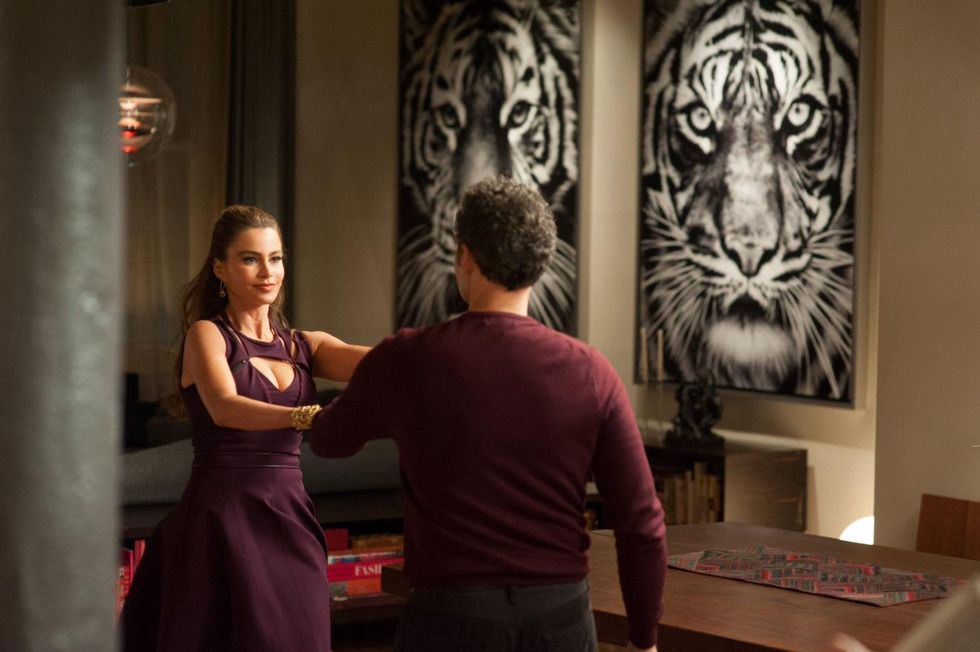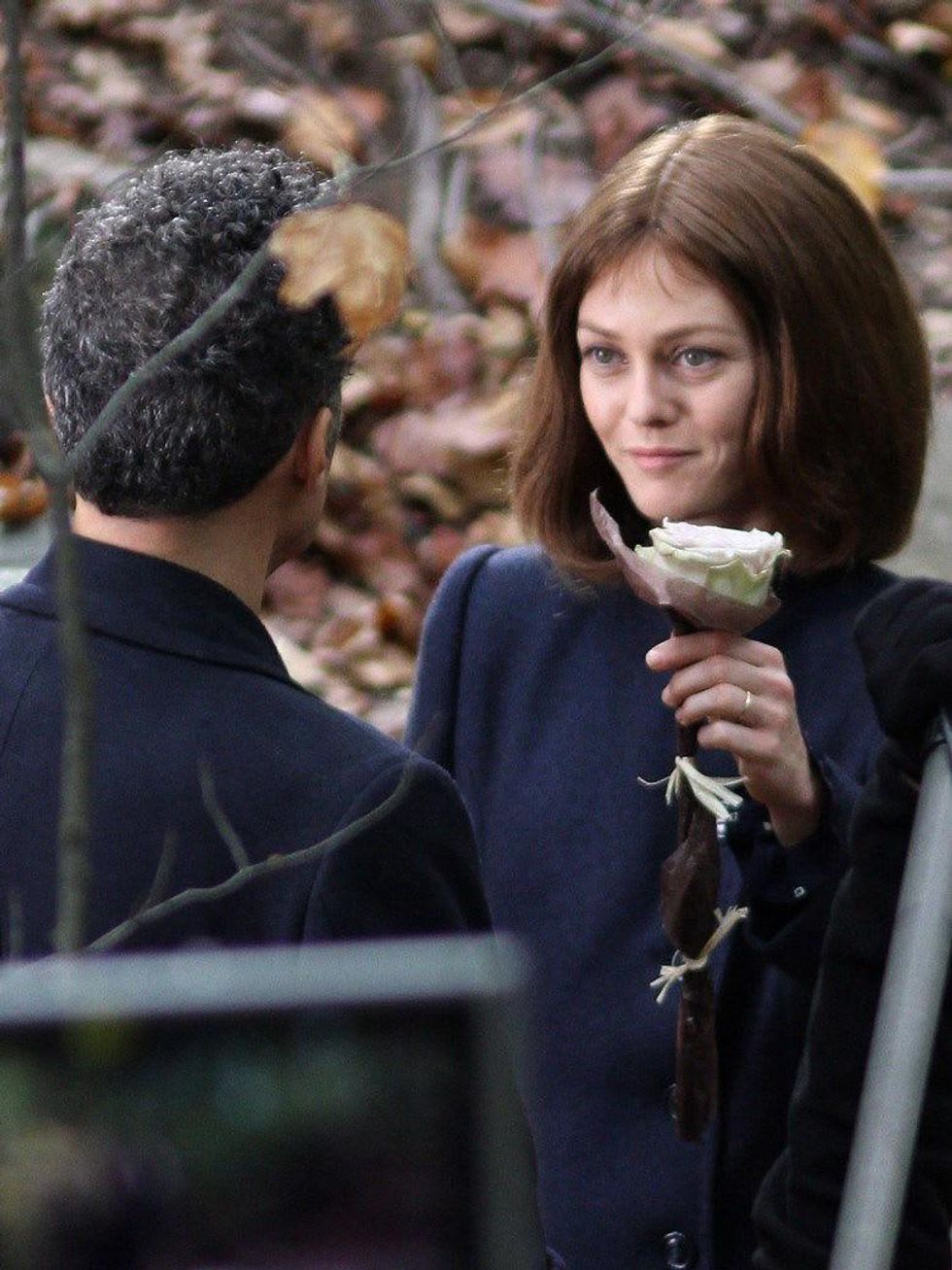Mondo Cinema
Fading Gigolo star weighs in on playing an escort, pleasing women & that Woody Allen controversy
Director John Turturro arguably is the only filmmaker who’d ever think of casting actor John Turturro as an attentive escort who’s handsomely paid for his sexual favors by exceptionally attractive – and extremely grateful – women.
But lo and behold, the audacious gamble of against-type casting pays off beautifully in Fading Gigolo, a witty and whimsical comedy of melancholy that gets maximum mileage from a maxim that could serve as the lead character’s credo: The best way for a man to capture the attention of a woman is simply to pay attention to her.
The best way for a man to capture the attention of a woman is simply to pay attention to her.
To be sure, even Fioravante (Turturro), a cash-strapped budding florist, initially is dubious about his employment prospects when best buddy Murray (Woody Allen – yes, that Woody Allen) proposes that Fioravante rent himself out for close encounters of the amorous kind. (“You want me to be a ho?”)
But once he seals the deal with his first client (Sharon Stone), a beautiful dermatologist who’s eager for a threeway incorporating her closest friend (Sophia Vergara), Fioravante realizes how much money can be made by lending an ear, among other things, to neglected women.
It’s only when he falls for – and sexually awakens – a lovely, lonely widow (Vanessa Paradis) who’s also sought by a lovestruck cop (Liev Schreiber) that Fioravante entertains second thoughts about his new career in the world’s oldest profession.
Fioravante is the latest screen credit on the long resume boasted by John Turturro, a prolific and protean character actor who has played everything from Primo Levi (The Truce) to Howard Cosell (Monday Night Mayhem), from a blocked writer (Barton Fink) to a brainy eccentric (Quiz Show), from a Groucho Marxian con man (Brain Donors) to a manic and musical escaped convict (O Brother, Where Art Thou?).
Fading Gigolo is the newest addition to his list of directorial credits, an inventory that also includes Mac (1992), his affectionate portrait of a workaholic building contractor not unlike Turturro’s own dad, and Passione, which was screened with Turturro in attendance at the 2010 Houston Cinema Arts Festival.
Turturro called a few days ago to discuss his work on both sides of the camera for Fading Gigolo. The 57-year-old multihyphenate sounded justly proud of the movie’s early success during bookings in New York and Los Angeles – and seemed optimistic that audiences elsewhere also would embrace the film, offbeat casting and all.
CultureMap: As a director, you’ve never been afraid to simply present something as a given, without undue explanation. Like in your first film, Mac, there’s that moment of magical realism where the lead character’s father simply sits up at his wake, and complains to his son about the shoddiness of his coffin. In Fading Gigolo, you have Woody Allen suggest that you should become a gigolo, you think about it just a bit – and then you’re in business.
John Turturro: Well, I did have more things about the character originally – even in the stuff we shot. Like, at one point we find out that his dad left his mom, just walked out and never came back, and now he doesn’t trust love. But by the time we got to that, in a later scene with Vanessa Paradis, I figured, “Wow. He’s already implied that.” We already know Fioravante obviously was close with his mother, and he never talks about his father. And I mean, who knows? Maybe he lost his mom when he was very young. We have a couple of hints about that. But like I say, I actually took out a couple of things [in the script] during the shooting, because when the time came to film them, I figured we were already past that.
"Woody is my friend....Sure, people are going to write about it. But I watch audiences – and they just go with the movie."
When I was doing the various drafts, as far as him getting into the business, Woody gave me a lot of his feedback. And he was always encouraging me to make it more nuanced. He told me that you could develop it in a sensitive way so that it wouldn’t, you know, run out of steam. I actually had a much longer introduction at first. But I was thinking about how I was going to do this movie in a certain amount of time. And I said this to Woody, and Woody said to me one day: “OK, you’ve got all these other scenes – why don’t you try incorporating all of that in the first scene, and then get on with it?”
And if you think about it, you know that sometimes happens to people in life. They think a long time about doing certain things – and then they never do them. And then, other times, people just say OK, let’s do it. In this case, I just think it was better to get to it quicker rather than later. And Woody was encouraging me to do that, too.
CM: Of course, Fioravante doesn’t just become a gigolo – he becomes one who’s so good, he gets a hefty tip from his first client. Did you ever think, “Boy, I’m really setting myself up as a big target here…”
JT: [Laughs] That’s a good question. But Joe – and I’ll be very honest, because I’ve talked with you for years – I still maintain an innocence about myself. I feel like I don’t really think about what people are going to say. I feel like, can I pull something off? Can I do it?
CM: They always say beauty is in the eye of the beholder. But there’s also another element to consider in movies: You actually have to make an audience believe a character is who he or she is supposed to be. You have to convince the audience.
JT: Well, you know, there are a lot people in movies who are very sexy – but are not really beautiful. Jeanne Moreau is a great, classic example. And to be honest again: In life, I’ve had many beautiful girlfriends. I have a beautiful wife. Now, I never felt like a cocky guy. But I’ve always felt confident. I have lots of friends who are confident in all kinds of ways. We’re all different. In this case, I knew I had to be in good physical shape. And I had my hair cut really nicely. But I had to look… Well, it’s a very Latin thing that Sophia says: “You look like a man. Not too pretty.”
"Well, you know, there are a lot people in movies who are very sexy – but are not really beautiful."
In the movie, Fioravante says, “I’m too old, I’m not beautiful.” And Woody says, “Yeah, but women like you.” And really, women have always liked me. And I like women. We’ve shown this movie a lot by now. And we’ve never had a negative response from women about this character. As a matter of fact, women really go for this character in a big way.
CM: Your confident body language throughout the film helps a lot to sell the notion that, yes, this guy probably would be attractive to women.
JT: He is a confident man, physically. And he’s a quiet man. He’s not shy. But there’s a difference between cocky and confident. I always saw him as like a samurai type of guy. Or a cowboy type of guy. But instead of beating people up, he’s a florist. And he’s comfortable with women. A lot of men aren’t comfortable with women.
CM: Well, let’s be honest: There are a lot of men who really don’t like women.
JT: That’s the whole point of the movie. This guy likes women. And then he meets maybe the one woman he could stay with. But in that situation, it’s pretty impossible.
CM: OK, let’s address the elephant in the room. Woody Allen recently has been in the papers a lot, for all the wrong reasons. Were you ever afraid audiences would be distracted by that while watching Fading Gigolo?
JT: Yeah. Well, audiences aren’t, I find. But some of the reviewers are. It’s like they’re covering stuff that’s on a different page in the newspaper. There’s nothing I can do about it. I know she wrote her opinion, he wrote his. Woody is my friend. I’ve worked with him in the theater and this and that. But I don’t know anything about it. I have nothing to say about it. Sure, people are going to write about it. But I watch audiences – and they just go with the movie.
CM: Finally, you mentioned getting input from Woody while writing the script. Who would you say are some of your other influences? To me, Fading Gigolo is reminiscent of films by people like Francois Truffaut and Jean Renoir – keenly observant, but nonjudgmental. No attempt to divide characters into good guys and bad guys. Like Renoir has someone say in The Rules of the Game: “Everyone has their reasons.”
JT: Well, I love those movies. I’m a big Truffaut fan. And of course he’s obviously connected to Renoir. I’m also a big Louis Malle fan. I love their movies because they show how the world is. People always like to put things in black and white. But things are really like what Primo Levi says in one of his books – in the gray zone. I like dealing in shades of gray.





